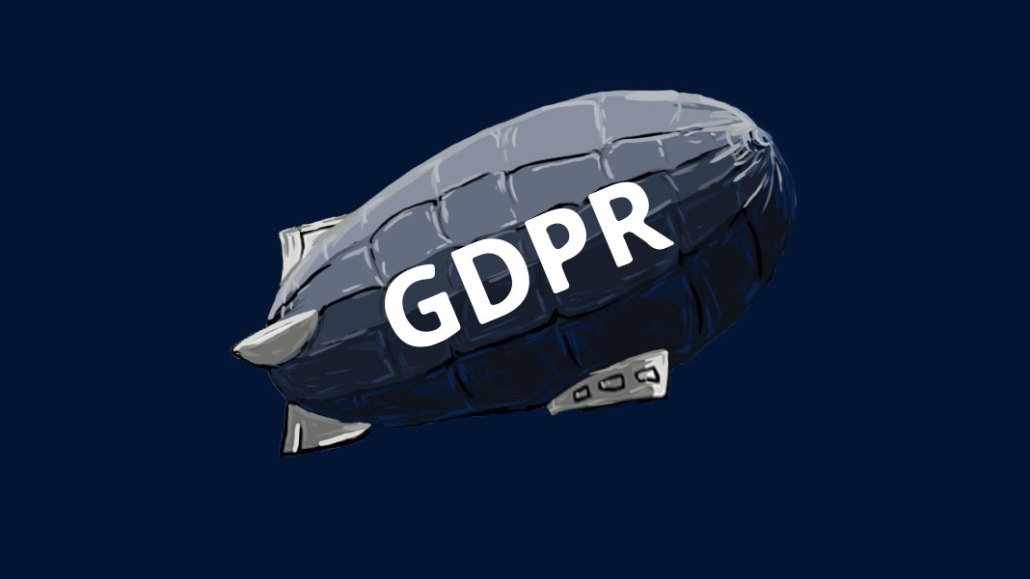Secure your place at the Digiday Publishing Summit in Vail, March 23-25
Dire predictions aside, GDPR didn’t kill ad retargeting (it’s growing)

Europe’s far-reaching data privacy law was meant to be the end of ad retargeting, but the early signs suggest it’s still going strong.
Six weeks after the arrival of the General Data Protection Regulation, spending on retargeting is rising, according to several advertising executives. In the case of three of those executives, who all spoke to Digiday on condition of anonymity, brands cut spend on prospecting campaigns but continued to retarget ads in the wake of the regulation being enforced.
Prospecting in programmatic is done on reach and scale and so mainly uses third-party data, which is far too risky for advertisers when it comes to knowing if it has been legally obtained. Retargeting, on the other hand, is an area of certainty for those brands that have shifted spend to safe GDPR-compliant businesses. When the Interactive Advertising Bureau’s consent framework launched in April, it was widely adopted by publishers and major players and, when properly informed, a majority of users have shown a willingness to opt in. The impact to retargeting has, therefore, not been as dramatic as some industry observers anticipated.
“Data targeting and first-party retargeting was certainly affected [by GDPR], with audiences dropping by up to 50 percent, and spend proportionally,” said Dom Blacklock, head of strategy at media buyer the7stars. “But this is going back to normal sizes as users consent to the new terms and conditions.”
At ad tech firm Adform retargeting levels are stable and haven’t seen huge drops over the last month, said Oliver Whitten, chief operating officer at Adform. “I think a lot of this is due to the preparation that many companies put in place ahead of the GDPR and adhering to industrywide protocols, he said.
Despite retargeting’s resilience to the GDPR effect, wholly attributing the death of prospecting to the data law would be incorrect. It’s still taking place, according to the executives interviewed for this article. What’s changed is how seasoned programmatic marketers realize it makes sense to retarget an audience they have spent time and money prospecting. This is why on the surface it appears that programmatic budgets may have shifted from prospecting to retargeting when really they work in tandem, said Whitten.
“What we are certainly seeing on the client side is the use of more lookalike models to extend first-party audiences,” he said.
Not all retargeting is likely to be compliant. Everyone in advertising is hedging their bets when it comes to the GDPR, and it remains to be seen how it will fully impact programmatic. For now, there’s a nervousness among advertisers over whether the policies of third-party audience targeting and data companies meet the requirements to keep their brand safe.
“What is the hardest part of the GDPR? There’s a lot out of our control,” said Dan Salzman, global head of media at Hewlett Packard. “We’ve locked down our data and customers. But we partner with all sorts of vendors that collect data themselves. At the end of day, if an ad shows up on web page by a third party, where does the responsibility lie? My fear is that people think it’s ultimately the advertiser. That’s my fear.”
Retargeting’s resilience is ultimately a side effect of a market that’s realizing there is still time to become more organized with many publishers yet to fully implement consent-management platforms. In the meantime, all parties are concerned about is losing revenue.
“Despite transparency, trust and brand-safety concerns, the benefits of programmatic in terms of scale and cost continue to see budgets moving to automated buying,” said Mark Bembridge, CEO at ad tech business Smartology. “Since the onset of the GDPR in Europe there has been an initial drop in programmatic activity which looks now to be leveling out as publishers, agencies and brands realize that there will not be any immediate impact on the market as everyone perhaps spuriously claims legitimate interest.”
Download our complete guide to GDPR.
More in Media

WTF is a creator capital market?
What is a creator capital market, what does it mean for creators looking to diversify revenue, and why is it so closely tied to crypto?

Media Briefing: Publishers explore selling AI visibility know-how to brands
Publishers are seeing an opportunity to sell their AI citation playbooks as a product to brand clients, to monetize their GEO insights.

Creators eye Snapchat as a reliable income alternative to TikTok and YouTube
Figuring out the Snapchat formula has been very lucrative for creators looking for more consistent revenue on a less-saturated platform.








